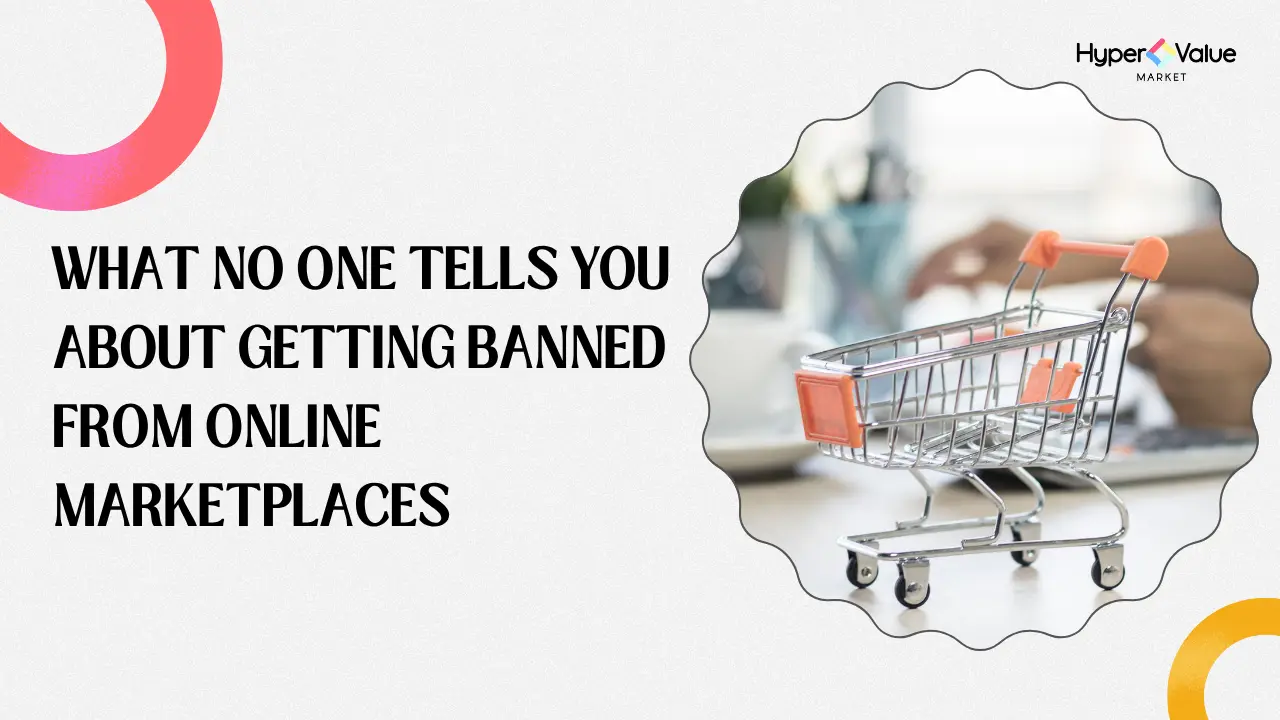If you’re a seller on platforms like Amazon, eBay, Walmart, or Etsy, you probably live with a low-key fear: What if I get banned?
It’s not paranoia; marketplace suspensions happen more often than you think. And when they do, they’re not just frustrating, they can destroy your business overnight. But what’s worse? Most sellers have no idea what actually causes bans or how to prevent them until it’s too late.
So let’s break it down: what no one tells you about getting banned from online marketplaces and how to stay ahead of it.
It's Not Always Your Fault (But You’re Still Accountable)
Many sellers assume that if they follow the rules, they’re safe. The truth? You can still get flagged or banned due to:
- Customer complaints (even false or unfair ones)
- Competitor sabotage
- Policy changes you didn’t catch
- Fulfillment issues are out of your control
Online marketplaces operate on algorithms and strict standards. If your metrics drop even slightly, you could be at risk, even if you’re not at fault.
You Won’t Always Get a Warning
Sellers often expect a “yellow card” before a full-on suspension. But many platforms issue immediate suspensions with little to no explanation.
That means:
- One late shipment? You might get a warning.
- A few bad reviews in a row? Instant ban.
- Flagged product titles or descriptions? Goodbye account.
Being reactive doesn’t work. You need to take a serious look at every part of your operation.
Getting Reinstated Is a Full Time Job
Once banned, getting back in is a slow, painful process. You’ll need to:
- Submit detailed appeals
- Provide invoices, supplier info, and logs
- Sometimes wait weeks or months for a decision
Many sellers never recover and start from scratch on a new platform. Some even hire expensive consultants to write appeals. All of this could’ve been avoided with early safeguards in place.
One Platform Ban Can Lead to Others
Here’s the kicker: if you get banned on Amazon, for example, that ban might trickle into Walmart or eBay, especially if you use similar brand names, product listings, or supplier info.
Why? Marketplaces share data, and automated systems can flag similar behaviors. So a ban isn’t always isolated.
That’s why it’s critical to diversify your sales channels, protect your brand identity, and monitor performance metrics closely.
Marketplace Rules Aren’t Always Transparent
Each platform has its own maze of rules, and they change fast. What was acceptable last quarter might now be against policy. Unfortunately, these updates aren’t always well-publicized.
If you’re not reading policy updates or monitoring seller forums regularly, you could easily violate a rule you didn’t even know existed.
So What Can You Do?
- Track your performance metrics weekly, especially order defect rate, cancellation rate, and late shipments.
- Respond to customer messages and disputes promptly.
- Audit your listings to ensure compliance with marketplace terms.
- Diversify your income across platforms (and even off-platform sales).
- Get expert help if you feel your account is at risk.
Your Competitors Might Be Reporting You
Here’s the part that feels the most unfair: some bans are triggered by malicious competitors. In hyper-competitive niches, sellers sometimes:
- File fake intellectual property (IP) claims
- Mass-report your listings
- Leave false negative reviews
Unfortunately, marketplaces often side with the buyer or the accuser first. This means even false reports can temporarily get you delisted or suspended. It’s why smart sellers monitor their brand presence and respond to every flag quickly and professionally.
Automation Can Hurt More Than It Helps
Yes, automation tools are helpful, especially for bulk listings, repricing, or feedback requests. But here’s the downside: bad automation results policy violations.
Examples include:
- Automated repricing that violates MAP (Minimum Advertised Price) policies
- Bots sending too many buyer messages, triggering spam flags
- Listing templates with outdated or restricted keywords
If you’re using third-party software or AI tools, be sure to audit those tools regularly and understand what they’re doing behind the scenes.
Your Brand Reputation Is Bigger Than Just One Platform
The most successful online sellers treat each platform as just one piece of the puzzle. Why? Because building a real brand with strong product reviews, consistent social proof, and a growing email list means you’re not dependent on any single channel.
If Amazon cuts you off tomorrow, will your business survive?
Build your website
Start collecting emails
Explore marketplaces like Walmart, Etsy, and niche sites
Sell direct via social media and email campaigns
Marketplace bans hurt a lot less when you’ve diversified your digital presence.
Wrapping Up
Getting banned from a marketplace is like getting locked out of your own store – but with no key, no doorman, and no manager to call.
But when you understand the risks, monitor your metrics, and treat your seller account like a brand, not a side hustle, you’ll build something that lasts, ban or no ban.
Visit HyperValue Market to explore tools and insights that help you sell smarter, stay compliant, and future-proof your business.

